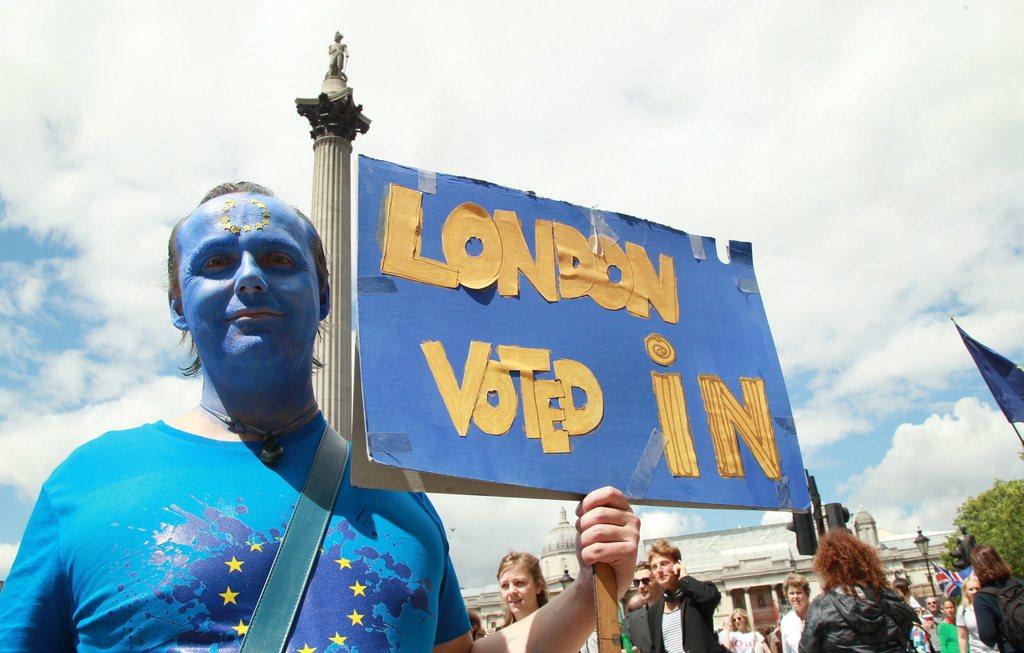The eerie calm of the Swiss franc after Brexit

Safe, but still vulnerable to aftershocks, Switzerland is a good place to watch financial market earthquakes such as the UK vote to quit the European Union.
Much of the wealth of the world’s richest families and entrepreneurs is channelled by banks in Zurich and Geneva. The Swiss franc – a “haven” currency – acts as a gauge of global investor nervousness. At the tensest moments of the post-2007 global and eurozone crises, the currency appreciated sharply, except between September 2011 and January last year, when its value against the euro was capped by the Swiss National Bank (SNB).
But so far, and to the surprise of many, the Brexit vote is failing to have the impact on the Swiss currency and the affluent Alpine economy that might have been expected. That could either be good news for global investors or, and unfortunately more likely, the latest ominous warning of how central bank actions are suppressing volatility and distorting market signals.

More
Financial Times
External linkInitially, the June 23 vote seemed a significant and unexpectedly-negative event – or unexpectedly positive for Swiss banks looking for a short term lift to revenues from trading on behalf of panicking clients.
While in the first three months of this year Swiss bankers complained global market turbulence had paralysed activity, their second-quarter results were boosted by the volatility surrounding the Brexit vote.
The difference was that Brexit decision was seen initially as unequivocally bad news for Europe. “The moment something happens which gives [markets] a clear direction, down or up, then volumes pick up,” explained Boris Collardi, chief executive of Julius Baer.
Subsequently, however, the fallout from the Brexit vote has appeared rather less dangerous.
Collapsed sterling
True, the franc has leapt against the pound, or rather the pound has collapsed against other currencies. It is harder these days to find British tourists hiking in Swiss mountains, although UK prime minister Theresa May was here on holiday. But the Swiss currency has barely risen against the euro and is below levels seen in April.
“I expected much more, a bigger exchange rate reaction, that the SNB would have to intervene a lot more,” admits Stefan Gerlach, chief economist at Switzerland’s BSI Bank.
One explanation is that initial negative assumptions about the impact of Brexit have been revised. It is easy to find Swiss sympathy with British Brexiters. Switzerland has for decades doggedly refused to join the EU. Instead its businesses rely on a web of bilateral agreements for access to the bloc’s markets; its conservative politicians are similarly in favour of independent nation states, freer markets and deregulation.
International investment managers also assume that Anglo-Saxon politicians would not take any steps that threatened economic growth unnecessarily.
Not much Brexit support
Yet local bankers report it is hard to find international clients who see Brexit as clearly good news for the UK, Europe or the world. “There are not a lot who actively believe it is going to be positive,” says Mark Haefele, global chief investment officer at UBS in Zürich. “The reason is that nobody has yet made a coherent case for why it puts the UK on a higher economic growth path.”
Instead, Mr Haefele argues the “paradox” of financial markets remaining benign despite fears about European economic prospects since the June 23 vote is another example of central bank actions “trumping” politics.
A SNB research working paper published this month showed movements in the Swiss franc did not reflect so much actual capital flows. They were in fact better correlated with indicators of global or regional market uncertainty.
That fits with the pattern since the Brexit vote. Indices such as the Vix index of expected US stock market volatility, popularly known as the “Wall Street fear gauge”, and Vstoxx, its European equivalent, have remained calm.
In turn, that is almost certainly the result of counter measures by central bank action. The SNB has been part of that story. Its tactical currency interventions have proved effective in limiting the franc’s appreciation. Even more effective in suppressing volatility have been the additional economic stimulus measures announced by the Bank of England and hinted at by the European Central Bank which have kept the mood calm in Switzerland – for now.
Copyright The Financial Times Limited 2016

In compliance with the JTI standards
More: SWI swissinfo.ch certified by the Journalism Trust Initiative












You can find an overview of ongoing debates with our journalists here . Please join us!
If you want to start a conversation about a topic raised in this article or want to report factual errors, email us at english@swissinfo.ch.